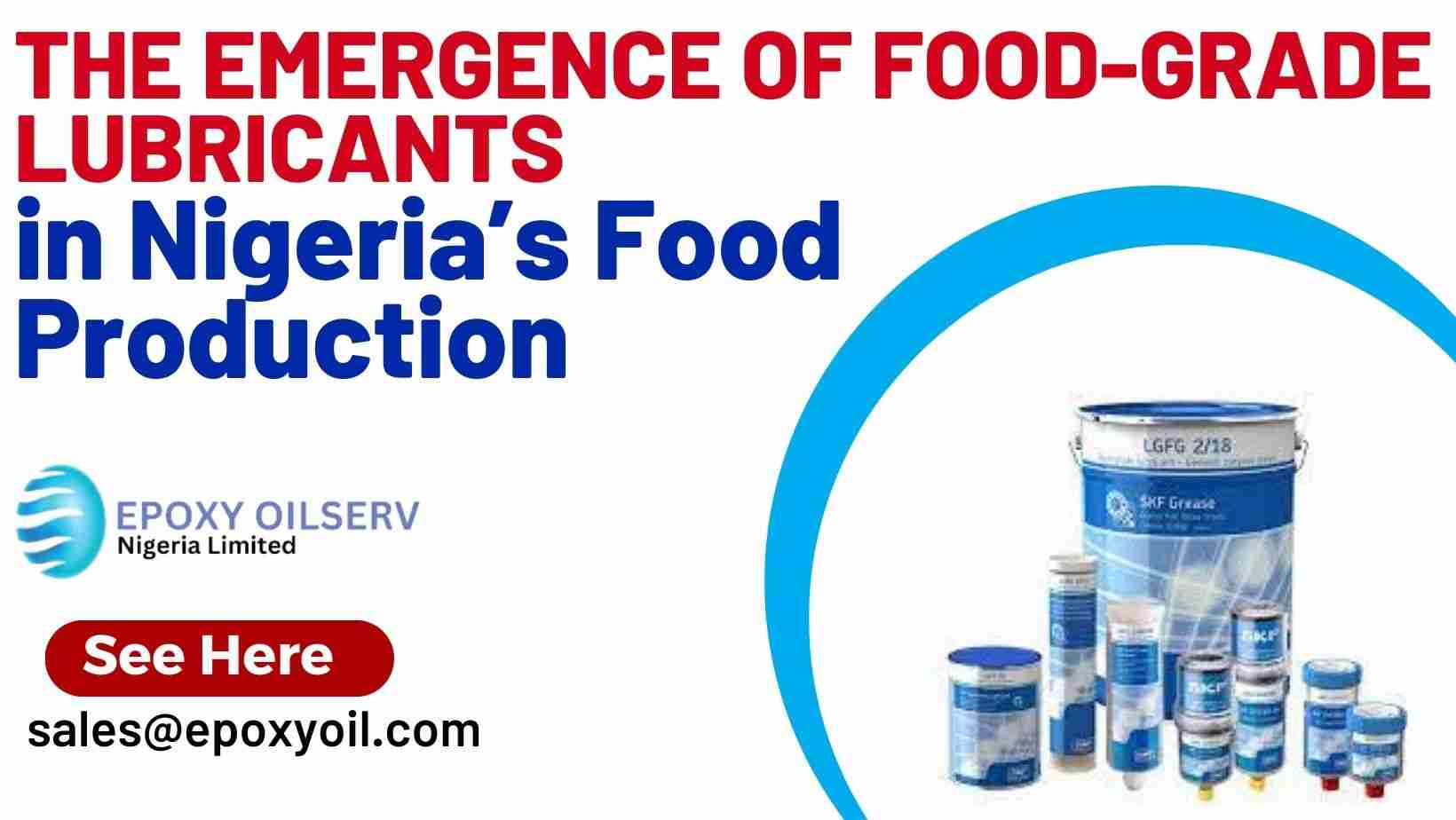The Emergence of Food-Grade Lubricants in Nigeria’s Food Production
Food-Grade Lubricants in Nigeria’s Food Production
In the vast landscape of Nigeria’s food industry, the National Agency for Food and Drug Administration and Control (NAFDAC) stands as a vigilant guardian, ensuring the safety and quality of food products. A notable evolution in recent times is the growing recognition and utilization of food-grade lubricants. This shift from conventional lubricants to those of food-grade quality is not merely a passing trend but a reflection of Nigeria’s dedication to aligning with international food safety standards.
The Era of Conventional Lubricants
Historically, the Nigerian food production sector was heavily dependent on conventional lubricants. These were essential for the seamless functioning of machinery integral to food production. However, the lurking danger was the accidental contact between these lubricants and the food items, leading to potential contamination. Such contamination altered the food’s taste and aroma and introduced health hazards for consumers. Food Lubricants differ from those used in industrial applications such as oil and gas, manufacturing, and mining.
The Advent of Food-Grade Lubricants
Food-grade lubricants are crafted to ensure safety even if they incidentally come in contact with food products. Their unique composition guarantees zero risk of contamination. NAFDAC’s guidelines underscore the significance of such preventive measures. For instance, the term “Food Grade Packaging” in the guidelines accentuates the importance of materials that don’t jeopardize food safety.
The Imperative of Food-Grade Lubricants
The relevance of food-grade lubricants in food production cannot be overstated. Here’s why:
- Safety and Health: These lubricants, formulated with advanced synthetics, are tailored to deliver peak performance without compromising safety. Meeting stringent regulatory benchmarks, they are safe from any incidental food contact.
- Preventing Contamination: They play a pivotal role in averting expensive contamination that could arise from spillages in food processing setups.
- Regulatory Compliance: Food producers must adhere to pivotal food safety criteria. Using certified food-grade lubricants aids in aligning with these regulations, set by authoritative bodies like the National Sanitation Foundation (NSF) and the U.S. Food and Drug Administration (FDA).
- Equipment Performance: Optimal equipment performance in food production is contingent on proper lubrication. Food-grade lubricants ensure machinery operates at its best, curtailing downtime and maintenance expenses.
- Extended Equipment Life: These lubricants can amplify the longevity of equipment in food production, offering adequate lubrication and minimizing friction on moving components.
Who Should Prioritize Food-Grade Lubricants?
- Food Manufacturers: To guarantee the safety and excellence of their products, food manufacturers must prioritize these lubricants.
- Food Processors: Those involved in various food processing tasks, such as production tasks from cutting to grinding, should emphasize the use of food-grade lubricants.
- Regulatory Bodies: Entities like the NAFDAC, FDA, and NSF play a crucial role in food safety and should advocate for using these lubricants.
- Consumers: An informed consumer should recognize the importance of food-grade lubricants in food production, ensuring they make educated choices when buying food products.
The Catalysts for Change
Several factors have propelled this shift towards food-grade lubricants:
- Global Awareness: As international best practices began influencing local industries, Nigeria took cues from the worldwide adoption of food-grade lubricants.
- Regulatory Initiatives: NAFDAC’s guidelines have been instrumental in this transition, emphasizing the importance of safety measures, including the choice of lubricants.
- Informed Consumer Base: Today’s consumers, equipped with information, demand superior and safer products, pushing industries to adopt safer practices.
Beyond Safety: The Advantages
While safety remains paramount, the advantages of food-grade lubricants are manifold:
- Equipment Durability: While ensuring food safety, these lubricants also enhance machinery longevity.
- Economic Benefits: Reduced contamination risks mean fewer product recalls, translating to substantial long-term savings.
- Consumer Trust: When industries adopt best practices, consumer trust in products escalates, fostering brand loyalty and boosting sales.
The ascent of food-grade lubricants in Nigeria’s food production landscape signifies a monumental stride towards enhanced food safety practices. It epitomizes the industry’s commitment to offering the Nigerian populace the best. As the world progresses and encounters novel safety challenges, such approaches will stand as bulwarks, ensuring consumers’ continued safety and well-being.
Where to Procure Food-Grade Lubricants in Nigeria
- Epoxy Oilserv Nigeria Limited: Locations – Lagos, Abuja, Calabar, Port Harcourt
- GZ Industrial Supplies Nigeria Limited: Locations – Abuja, Lagos, Port Harcourt, Ota, Ogun State, Calabar
- Tikweld products and Services: Locations – Port Harcourt, Lagos, Abuja
- Hellog Energy and Equipment Limited: Location – Port Harcourt


